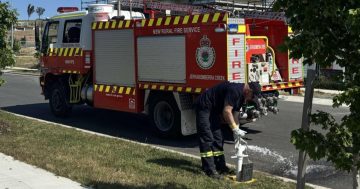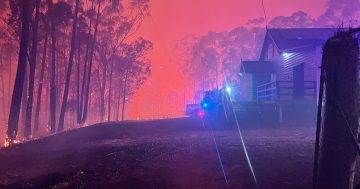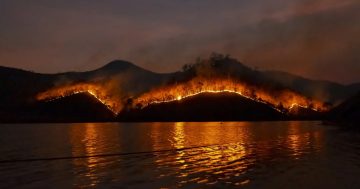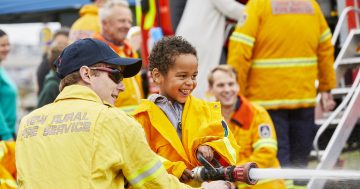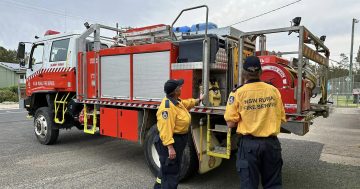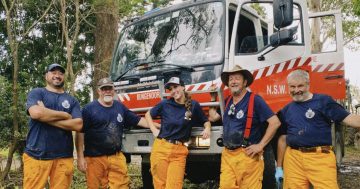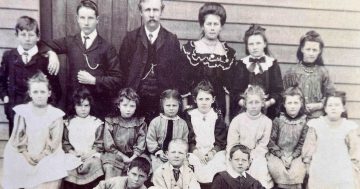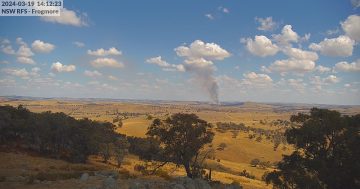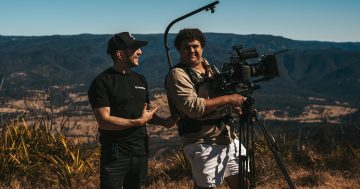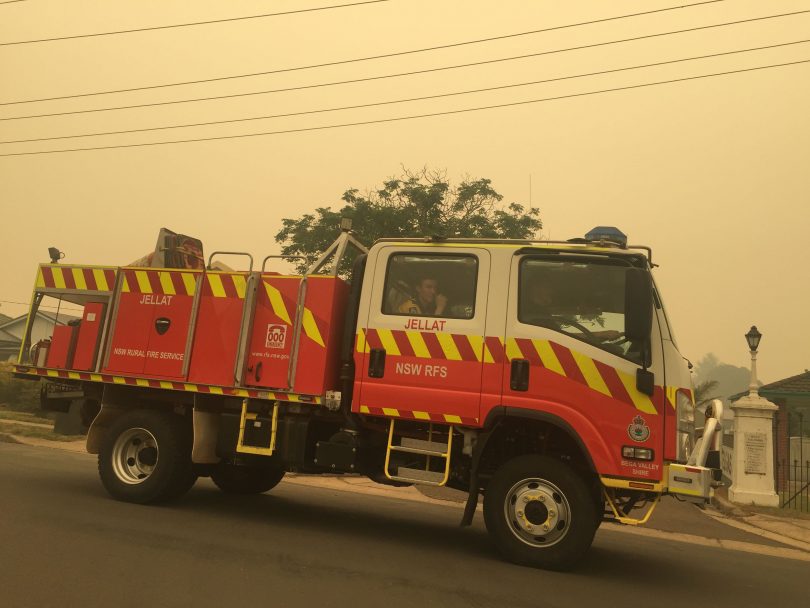
NSW Rural Fire Service members are concerned that bushfire damage is out of sight, out of mind because of COVID-19 restrictions. Photo: Lisa Herbert.
After a tough summer of unprecedented bushfires that killed 33 people – around one-third of them firefighters – NSW Rural Fire Service (RFS) members are worried the COVID-19 crisis has pushed the bushfires out of sight and out of mind. And they’re wary of what that could mean for unmet needs within the community, including mental health issues arising from the disaster.
Local firefighters have told Region Media they’re concerned they’ve been left behind and while the community has worked together to meet challenges, they’re not sure whether any other help will be available.
It’s an issue the president of Smiths Road Rural Fire Brigade, Peter Henry, hopes the Royal Commission into National Natural Disaster Arrangements – also known as the Bushfire Royal Commission – will address.
“Just driving through all the forests on the way down to Batemans Bay made me realise that all has been forgotten it seems,” said Mr Henry. “There is regrowth but you can see how much damage has been done and no-one is really talking about it. That worries me with communities that have been much more affected than we have.
“In a way, it seems to me that many bad decisions that were made by the government during the fires are being forgotten because people are not getting out and seeing how bad it was.”
Mr Henry said the Bushfire Royal Commission, which resumes hearings today (2 June), is a good opportunity for Australia to look back at the black summer fires and assess what went wrong.
“I am not a big person to get into the blame game, but there are lots of things that probably could have been done better during the whole thing and we need that opportunity to have a discussion about it, good or bad,” he said.
“It is just as important to say, ‘Look, we did a really good job’, and, ‘Maybe this could have been better’, and reflect on ways we can move forward to make it better.
“To me, it just highlights the severity of those fires and a part-time volunteer firefighting force is really the best way to deal with such a ferocious and unpredictable fire.”
RFS brigades are known for their camaraderie and ties to their local region. Community spirit and mateship provide the foundation for their invaluable contribution as volunteer first-responders to some of rural Australia’s most dire situations. However, despite having a tight-knit community at Smiths Road, just across the ACT border southeast of Tharwa, the Smiths Rd brigade has not been able to debrief following the fires because of COVID-19 restrictions.
Social isolation has made complete closure hard to establish, said Mr Henry.
“My sense is all the people I talked to quickly moved on because they had to, to deal with the [pandemic],” he said.
“You become really close to people, you see them every day on the trucks and then when you do not see them all of a sudden it is an empty feeling.”
A brigade debrief and a community debrief had both been scheduled but because the community cannot get together they haven’t been able to carry them out. That’s prevented the brigade from identifying where help is needed for funding and mental health resources.
“We don’t know when it’s going to happen because we are talking about 30 or 40 people getting together in a small community hall so there is a sense that we have not had any real closure over it.”
But despite the fact that only 16 per cent of the $78 million set aside by the Federal Government for mental health services after the bushfires has been rolled out, Mr Henry said people in the community are coping the best they can and are, generally speaking, doing well.
“People have been pretty good at touching base with their neighbours. We know who the older people are, or the people with health issues, so I think they are going OK.
“It was really interesting that the community part of it – getting together with people during times of emergencies – we had some community groups in Cooma organise a meeting for some volunteers.
“One older brigade member, who was a little bit unsure about wanting to take part in fighting fires, I rang him up and asked if he wanted to come to the event and he said, ‘I can’t, but it is really funny, I miss the days of getting together with my new friends on the trucks and it surprised me.”
If you or anyone you know needs help, please contact Lifeline on 13 11 14.












